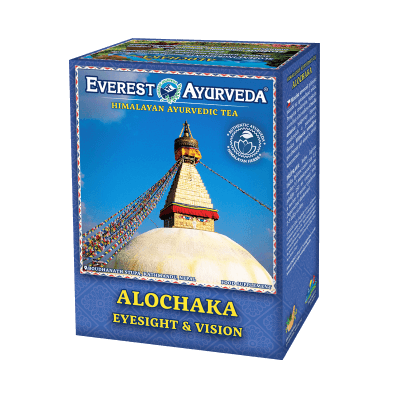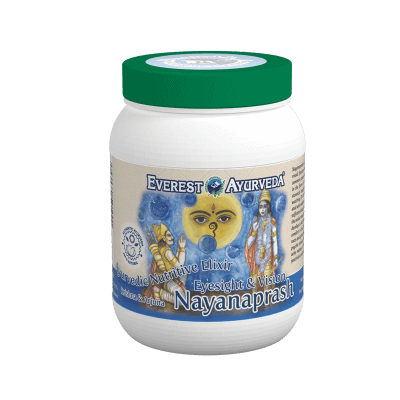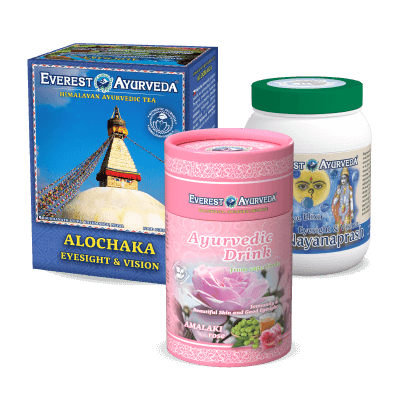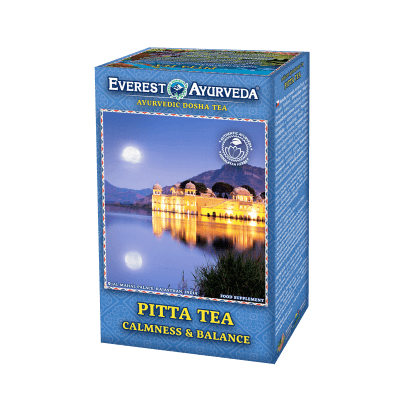
Few people pay attention to their eyes and vision before a problem appears. However, with healthy habits and proper care, we can avoid many problems and thus keep our eyes healthy and strong.
Eyes as a Sensory Organ
The eyes, as a basic sensory organ, help us convey up to 80% of information about the surrounding world. They are the basic sensor that processes the surrounding sensations and images, which they forward to the brain for subsequent interpretation. Good eyesight is an indispensable sense for recognition, orientation and quality experience of the world around us, and therefore it is worth taking care of it and keeping it healthy.
Eyes as a Gateway to the Soul
Eyes have been seen as the gateway to the soul since ancient times. A perceptive person can recognize another person's mood, thinking and overall mental and physical state through the eyes of another person. According to ancient Indian texts, a person's eyes are created to see the truth and are thus an open gate through which one can look into the higher sphere of human being. This is provided, of course, that one keeps one's mind calm and clear and is a mere non-judgmental observer of the world. Then a deep understanding is reflected in his eyes, which comes from the selfless love and goodness of his soul. If reality is perceived only by our restless mind, the reality we perceive will never be reality in pure sense, but a combination of our mind's interpretation (prejudices and programs) and sensory perception.
Eyes From the Ayurvedic Point of View - the Influence of Alochaka-Pitta
Ayurveda describes and recognizes brightness in a person's eyes, which is controlled by the so-called alochaka-pitta, one of the subtypes of pitta dosha (more about the psychosomatic constitution with the predominant element of fire and water in our article Characteristics of PITTA Dosha). In the broader Ayurvedic context, pitta dosha is the heat-generating energy in the 5 basic places of the human organism - the stomach (pachaka-pitta), the liver and spleen (ranjaka-pitta), the gray cortex of the brain (sadhaka-pitta), the skin (bhrajaka-pitta) and finally right in the eyes (alochaka-pitta).
Alochaka-pitta balances the temperature of the eyeball, the perception of color and light, the color of the iris and is the basis for optical perception. It is also associated with emotions and tear activity. Its imbalance can cause unwanted changes in the eyes. People with a predominant Pitta type of constitution should be especially careful, when this dosha and thus the element of fire can deviate (increase) and can cause, for example, burning of the eyes, inflammation of the conjunctiva or iris, barley grain or hypersensitivity to light through a deviated alochaka-pitta.
Causes of Impaired Vision
The most common causes of impaired vision, aside from alochaka-pitta deviation, include unilateral eye strain in the form of bad habits such as stomach reading, insufficient lighting, working at the computer or watching TV without regular breaks. Incorrect body posture associated with sedentary work causes neck stiffness, lack of blood flow to the head and uneven load on the oculomotor muscles. On this basis, there may be the development of neurological symptoms in the form of pressure and pain in the eyes, which reduce the comfort of vision in the form of nearsightedness, farsightedness or even cataracts. The quality of vision is also affected by mental tension, stress or lack of sleep, which result in headache, redness or burning of the eyes, dry eye syndrome, conjunctivitis and general fatigue.
Recommended Eye Care
If you have any of the above-mentioned eye problems, or have decided to take more care of your eyesight as part of prevention, we recommend Ayurvedic Alochaka tea and Nayanaprash nutritional elixir for optimizing visual functions and good quality of vision. The most effective eye care that we can offer is to combine these two Ayurvedic preparations as part of the Ayurvedic Therapy Eyes & Visual Functions. This effective herbal combination refreshes visual-cognitive functions, regenerates the optic nerve and retina, supports the nervous system function and overall mental health.
If you are a predominant Pitta type (find out! Try to fill out an orientation dosha test online), then Pitta tea can also help you with increased Pitta dosha for overall calming and cooling of the body. Don't forget to ease your eyes with proper posture and regular breaks when working on the computer, when you stretch, close your eyes and then exercise them for a while.
Taking Ayurvedic Preparations For Healthy Vision
Drink a cup of Alochaka tea 2-3 times a day (ideally with a teaspoon of Nayanaprash elixir). Always boil the herbal mixture for 3-5 minutes for a stronger effect. You can brew the tea in larger quantities and store it in a thermos to keep it warm.
Nayanaprash elixir is taken directly on a teaspoon 2-3 times a day and drunk with a sip of lukewarm milk, vegetable milk, water or herbal tea. We can also prepare a drink from it, mixing 1 teaspoon in 250 ml of lukewarm milk or water.
We recommend taking both the elixir and the tea on an empty stomach before meals for at least one month (based on 1 pack of tea and 2 packs of elixir) in order to achieve a deeper regeneration of visual functions.
Good morning, I drink ALOCHAKA, I work daily with computers and I had surgery. I discovered tea quite by accident in a shop on the main street in Ostrava, and since then I have been buying it regularly and mainly using it to my satisfaction. - Emil D.
Hello, we like to use Ayurvedic teas at home. We have tested PITTA, ALOCHAKA, VARUNA and HIMALAYAN RECREATION tea - they are excellent and really effective. We are very grateful to everyone involved in the production and import of these healing miracles. - Silvia Petríková, Trencin
I can only recommend your products. I have several kinds of tea, I have already used up two elixirs for eyes. I'm currently taking one for immunity, and I'm still waiting for a hair elixir to try. The hot drinks are also excellent. I will continue to buy your products. I wish you a lot of success. :) - Katarína, Presov




